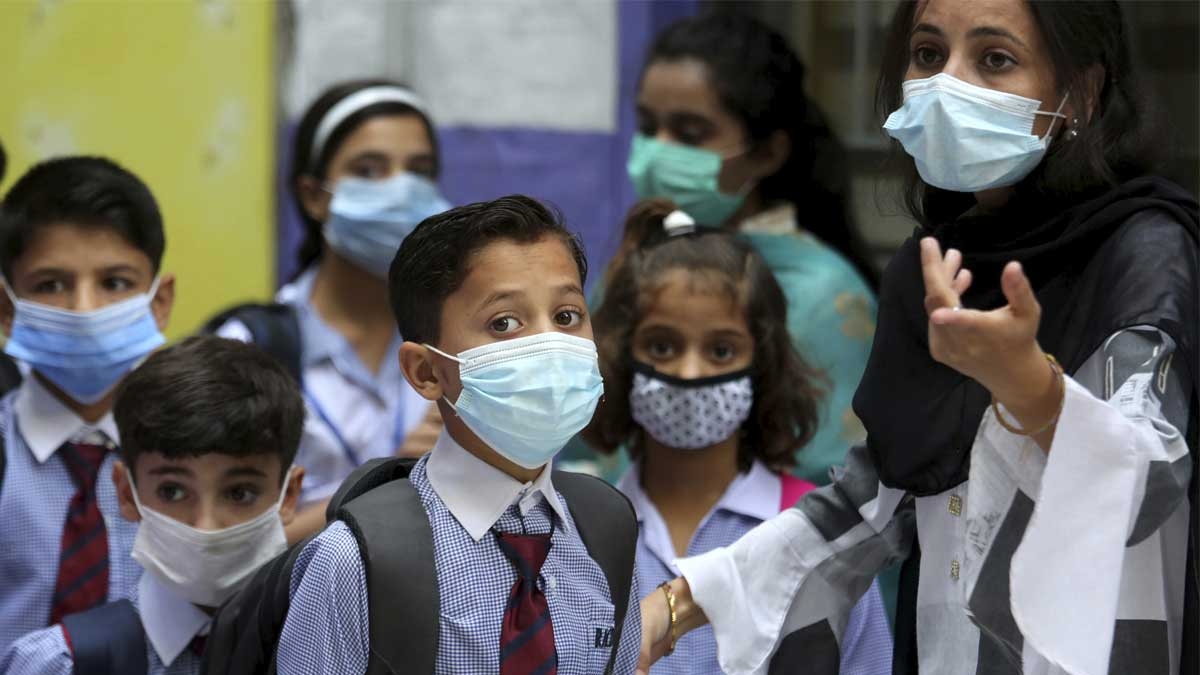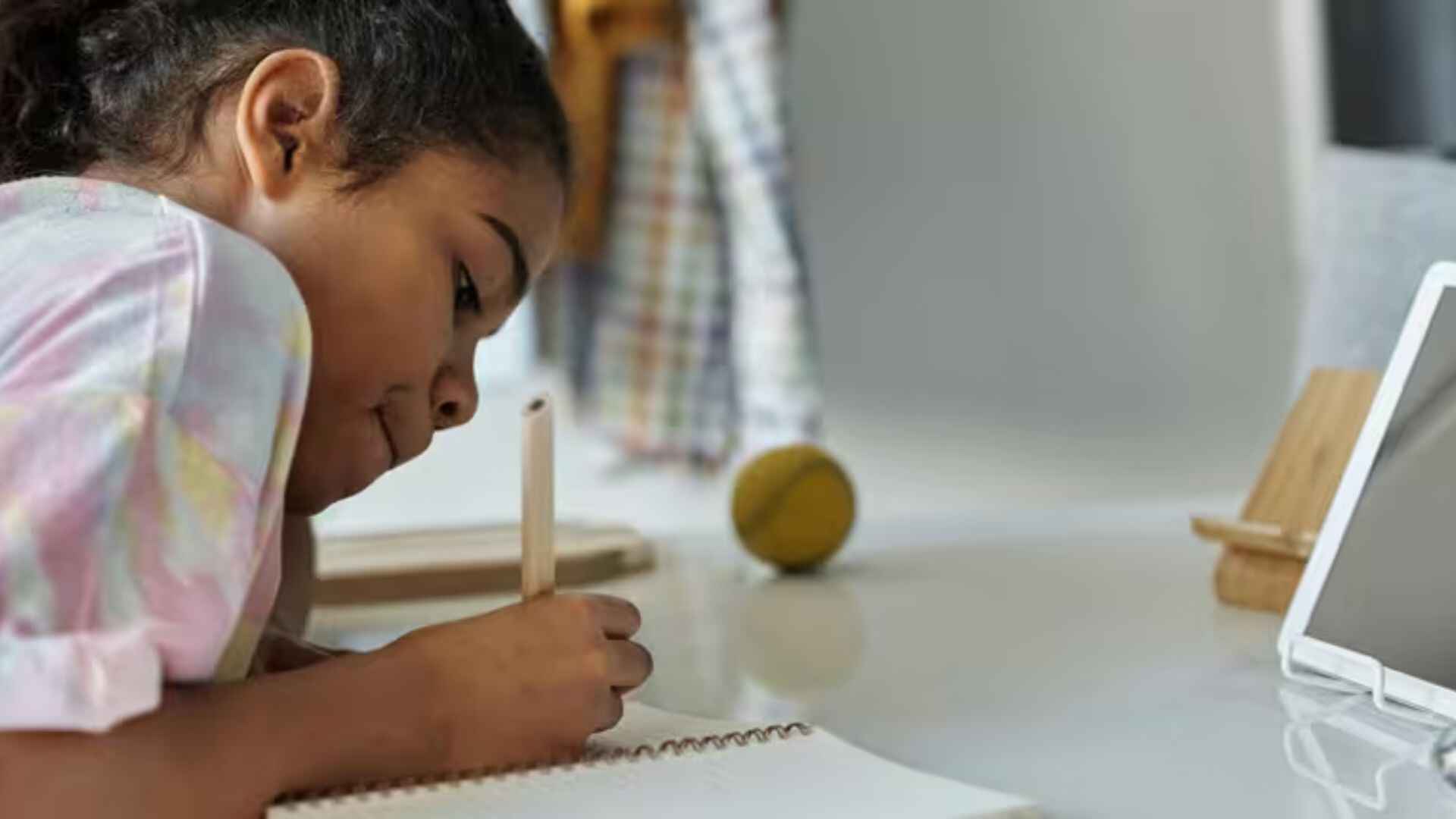
Children enjoy school, especially in their early years. Their lives revolve around the travel, friendships, eating together, sharing stories, creating things, playing, interacting with teachers, class participation, etc. There’s a lot more that children do in school other than learning.
The pandemic changed everything. Parents realised that with no clear end date in sight, children needed to quickly adapt to online schooling. But children’s initial excitement soon turned to boredom. What felt like a relief for most parents that their children could continue schooling within the safety of the home, gradually became a struggle.
Schooling from ‘home’
Unlike parents, with earlier experiences of working from home, most children had nothing to build on this novel experience. Besides, from their perspective, home and school are completely different physical structures, location and spaces. They represent different things and expectations from them are also distinct. This posed a hindrance to juxtapose life in school with schooling from home.
Earlier children had limited access to their parents’ devices. They used them judiciously for entertainment. With online classes, most children were given personal devices with the intent that they’re used exclusively for learning purposes. This shift from entertainment devices to learning devices was conflicting. Thus, parents occasionally found their children watching videos or playing games during online sessions.
Structure and discipline
Children need discipline and structure in their lives. Structure helps them understand what is expected of them, predict how adults will react to them and in turn how they should behave. Clear and consistent structure creates helpful boundaries.
Both the school and home provide these but differently. There’s flexibility at home and discipline changes form depending on each family member. At school, structures are rigorous, and they’re treated similarly based on established protocol.
Roles and responsibilities
Parents and teachers play different roles in children’s lives. Teachers prepare them to learn academic skills by creating lesson plans and assignments. Parents ensure children complete them timely and sometimes enrich their experience with tutoring and learning games. Schools were more responsible for the child’s education with parental support. Post pandemic, parental roles have increased significantly due to paucity of class timings and the need to safeguard them from excessive exposure to devices.
Anxiety
Children emotionally express themselves before developing the language to articulate their feelings. They quickly learn to manipulate emotions to strategically cope and manage their parents and environment. E.g., crying might work with one parent while whining works with another.
Teachers have a uniformed teaching style. Parents’ are emotionally lenient, and their personal styles are reflected when teaching. This difference confuses children so they inherently pick-up cues from teachers as they spend a significant amount of time at school. With online classes, parents have had to take the lead, while balancing work from home. This anxiety-provoking environment leads to conflict. Parenting role emphasises on being right and disagreements discourage them from giving in. This makes children feel compelled with no right to exercise their choice.
Parents equate this pandemic year as losing a year of schooling. They’re unable to demarcate between its short-term and long-term impact. Worries about the future overwhelm them and they resist sharing their fears and anxieties.
Social Skills
School participation and social gatherings build camaraderie and essential life skills. Children feel upset, lonely when isolated from their peers. During online sessions, their need to be heard aren’t satisfactorily met. Some push ahead while self-doubt of being judged make others apprehensive of class participation. Curiosity and experimentation help develop a thinking mindset. Also, building on each other’s competencies encourages teamwork. With restricted access to peers, children feel insecure and struggle under stress.
How can parents help? 1. Routine gives children direction and encourages independent behaviour. Parents should redefine schedules and routine. Children shouldn’t be allowed to wake up or go to bed late because they’re attending online classes. 2. Involve kids to create a comfortable and personalised desk space for school. With siblings and parents vying for room and space, children struggle to create boundary and ownership. 3. Set timings for gaming and TV. Restrictions and inability to participate in outdoor activities have forced kids to withdraw and create outlets online. 4. Children don’t think like adults. For them, gratification is mostly instantaneous. The language and tone used are important. What is said and what children hear can be very different. “Finish work now and play later,” may sound like their playtime is being restricted making the time to finish work seem longer. Be flexible and encourage children to define their future rewards. 5. When angry, parents exhibit certain patterns of behaviour or tend to repeat arguments. It’s important to choose one’s battles to retain the potency of an argument. 6. Conversations about behaviour change should happen when children are satiated, rested and attentive. It’s imperative to focus on the problem rather than being right. Too often parents believe that when children misbehave, it reflects their failure as “good” parents.
The writer is a mental health counsellor and blogger.















